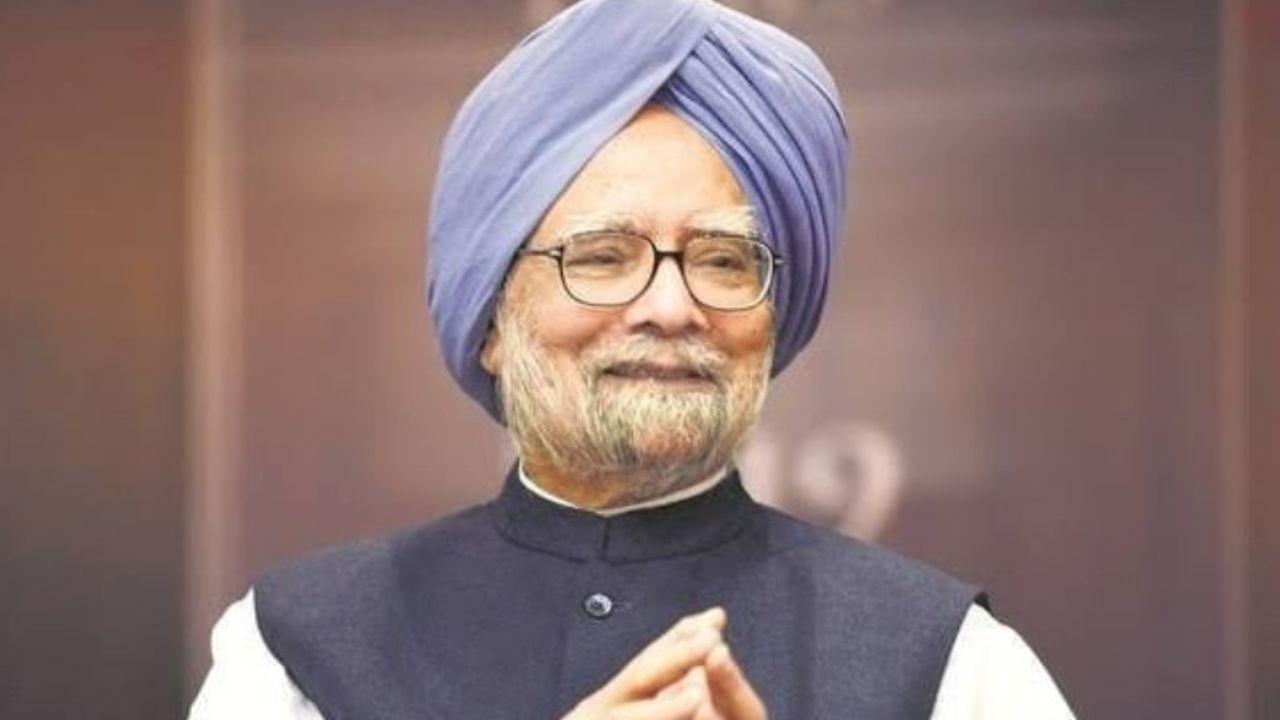
Post by: Luxmi Verma
In India's political history, few leaders are as respected as Manmohan Singh. His journey from a small village to becoming the Prime Minister of one of the world's largest democracies shows his hard work, intelligence, and vision. His story is not just about his own success, but also about the dreams and hopes of a country looking to grow and improve.
Born on September 26, 1932, in the small village of Gah (now in Pakistan), Manmohan Singh's early life was far from the grandeur that would later define his career. Raised in a family of modest means, Singh's childhood was shaped by the turmoil of the partition of India in 1947. The upheaval led his family to relocate to Amritsar, Punjab, where he completed his schooling.
Despite these challenges, Singh was a brilliant student. His academic journey, though marked by hardship, was guided by his passion for learning. He earned a degree in economics from Punjab University and later went on to complete his Master's degree in Economics from the University of Cambridge. His scholarly excellence earned him a doctorate from Oxford University, where he was exposed to global economic theories that would later shape his vision for India's economic transformation.
In the 1950s and 1960s, Manmohan Singh started his career as an economist. He worked with the Planning Commission of India, and his expertise in economics quickly gained recognition. Singh’s deep understanding of economic policy, international trade, and development economics made him a sought-after figure in academic and political circles.
One of his first significant contributions was working on India's Five-Year Plans, which aimed at shaping the country's development strategy. Singh’s intellectual prowess was clear even at this stage, as he worked tirelessly to integrate global economic practices with India’s unique challenges.
In 1991, India was facing one of its most severe economic crises. The country was burdened with an unsustainable level of foreign debt, inflation was soaring, and the economy was on the verge of collapse. In this moment of crisis, the then Prime Minister, P.V. Narasimha Rao, turned to Manmohan Singh to steer the country through these turbulent times. Singh, who was serving as the Finance Minister, played a crucial role in formulating the reforms that would shape India’s economic future.
Singh’s vision led to the implementation of wide-ranging economic reforms that liberalized the Indian economy. These reforms included reducing trade barriers, devaluing the Indian rupee, privatizing state-owned enterprises, and encouraging foreign investment. The reforms sparked a period of rapid economic growth and positioned India as one of the world's fastest-growing economies.
The 1991 economic reforms not only salvaged India from an economic crisis but also set the stage for the country’s emergence as a global economic powerhouse. Manmohan Singh’s role in this transformation cemented his reputation as a visionary leader.
In 2004, after the Congress Party led by Sonia Gandhi won the general elections, Manmohan Singh became the Prime Minister of India. Despite being a technocrat with no prior political background, Singh’s leadership was marked by humility, integrity, and a deep commitment to the country’s growth.
As Prime Minister, Singh continued the economic policies he had championed earlier, focusing on liberalizing sectors such as banking, infrastructure, and manufacturing. He also placed significant emphasis on education, health, and rural development. Under his leadership, India’s GDP grew at an impressive rate, and millions of people were lifted out of poverty.
One of Singh’s most significant achievements was his role in signing the Indo-US nuclear deal in 2008, which marked a new chapter in India’s foreign policy. This deal not only helped India gain access to nuclear technology but also reinforced its position as a global player in the world order.
The legacy of Manmohan Singh From Humble Beginnings to India's Visionary Leader is far-reaching. His tenure as Prime Minister is widely regarded as a period of economic stability and growth. Under his leadership, India’s position in the global economy was strengthened, and the country’s political stability allowed for significant social and infrastructural development.
Singh’s contribution to India’s global standing is also notable. His diplomatic skills, combined with his knowledge of international relations, allowed India to engage with world powers effectively. He was known for his pragmatic approach to foreign policy, strengthening ties with the United States, Japan, and several European nations.
Moreover, Singh’s approach to governance was defined by a commitment to transparency and inclusive development. His vision for a ‘knowledge economy’ led to an expansion in India’s IT and services sectors, which are now among the largest in the world. The rise of India as a technology hub can, in part, be attributed to the policies initiated during his tenure.
While Manmohan Singh is widely admired for his contributions, his tenure was not without its challenges. Critics argue that his leadership was sometimes passive, especially when it came to managing internal political dynamics. The 2G spectrum scandal, the Commonwealth Games controversy, and other corruption issues during his time in office raised questions about his ability to assert authority within his party and government.
Nevertheless, even his critics acknowledge his integrity and his dedication to India's progress. Singh’s leadership was marked by a focus on long-term goals rather than short-term political gains.
Manmohan Singh, born in 1932 in a small Pakistani village, rose from humble beginnings to become India's Prime Minister. Despite facing early challenges, he excelled in academics and earned degrees from Cambridge and Oxford. As an economist, he played a key role in India's development.
In 1991, as Finance Minister, Singh led economic reforms that turned India into a rapidly growing economy. As Prime Minister from 2004, he focused on growth, education, and global relations, including the Indo-US nuclear deal. Though facing criticism, his leadership is remembered for shaping India's progress.
The views expressed in this article are based on a retrospective analysis of Manmohan Singh’s life and career. While efforts have been made to present an accurate and balanced account, readers are encouraged to consult multiple sources to form their own understanding of the subject. The content reflects the perspectives of the author and does not necessarily represent the views of DXB News Network.
#trending #latest #ManmohanSingh #EconomicReforms #IndiaGrowth #Leadership #IndianPrimeMinister #IndoUSNuclearDeal #EconomicTransformation #IndiaProgress #ManmohanSinghLegacy #IndianEconomy #PoliticalHistory #GlobalRelations #LeadershipChallenges #breakingnews #worldnews #headlines #topstories #globalUpdate #dxbnewsnetwork #dxbnews #dxbdnn #dxbnewsnetworkdnn #bestnewschanneldubai #bestnewschannelUAE #bestnewschannelabudhabi #bestnewschannelajman #bestnewschannelofdubai #popularnewschanneldubai

Sheikh Sultan bin Mohammed Al Qasimi condoles with Sheikh Saud bin Rashid Al Mualla on the death of his mother, Sheikha Hessa bint Hamid Al Shamsi....Read More.

Nigerian boxer Gabriel Oluwasegun Olanrewaju dies after collapsing in the ring during a fight in Ghana. He was 40. Tragic loss for the boxing community....Read More.














Ananya Panday Shines at IPL 2025 with Stunning Dance Performance
Bollywood star Ananya Panday dazzled the crowd at Wankhede Stadium with her energetic dance before M

Foreign Minister Joins Heritage Foundation Discussion in Washington
Dr. Abdullatif Al Zayani attended a session at the Heritage Foundation in Washington, discussing Bah

ChatGPT Hits 1 Million Users in an Hour with Ghibli AI Art
OpenAI's new image feature, creating Ghibli-style AI art, goes viral. ChatGPT added 1 million users

UConn Joins Top Seeds in Women’s Final Four
UConn, South Carolina, UCLA, and Texas are in the Women’s Final Four. It’s set to be an exciting sho

7 Free Ghibli-Style AI Image Editors to Try Now
Transform your images into Ghibli-style art with these 7 free AI tools. From dreamy landscapes to an